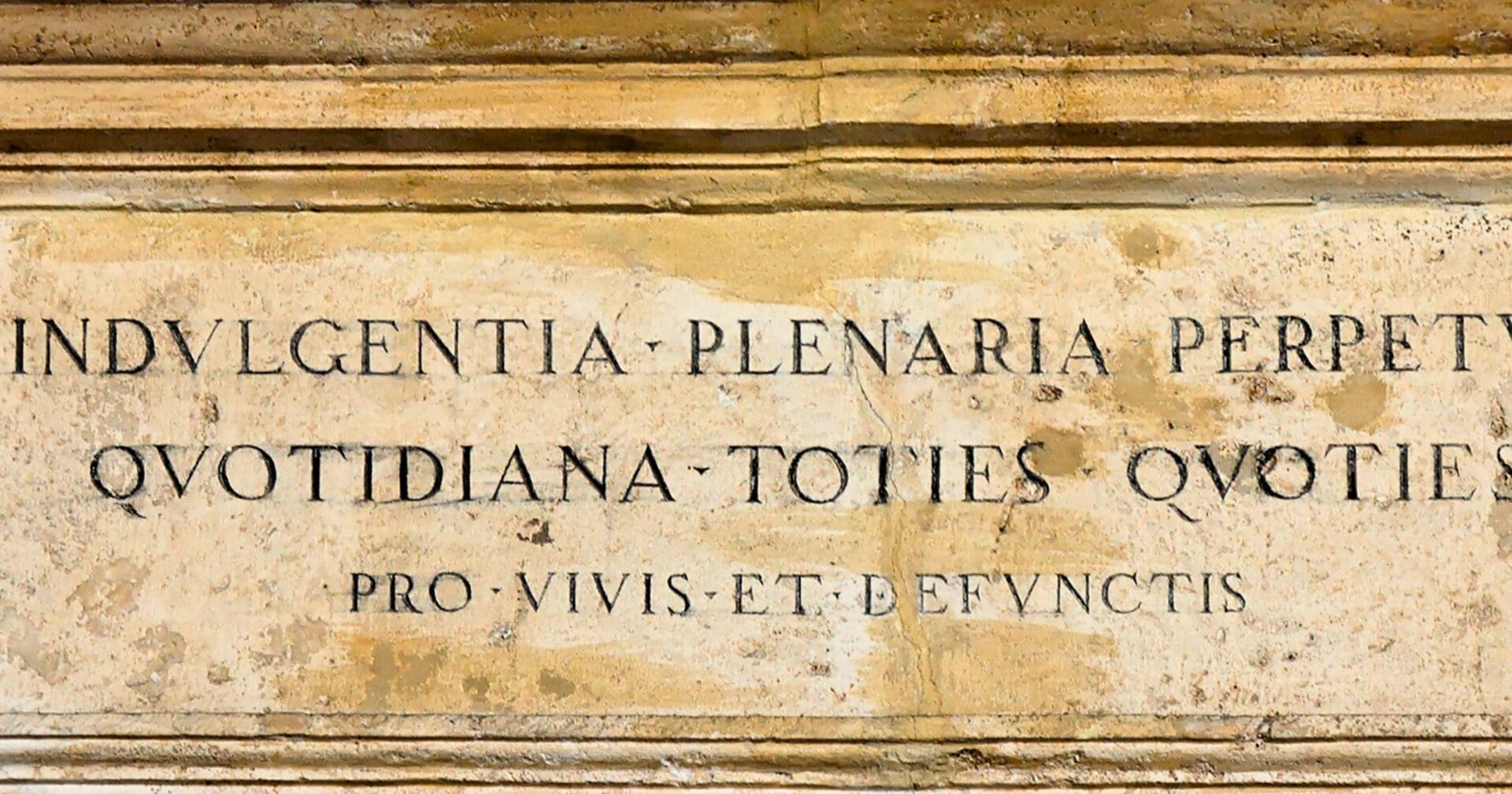According to the Catechism, an indulgence is a remission of the temporal punishment associated with sin. Here are three indulgences available that you can receive during the Easter Triduum of Maundy Thursday, Good Friday, and Holy Saturday.
“An indulgence is a remission before God of the temporal punishment due to sins whose guilt has already been forgiven, which the faithful Christian who is duly disposed gains under certain prescribed conditions through the action of the Church which, as the minister of redemption, dispenses and applies with authority the treasury of the satisfactions of Christ and the saints” – Catechism of the Catholic Church 1471
Holy Thursday: Eucharistic Procession and Adoration
A plenary indulgence is granted to the faithful who piously recite or sing the verses of the Tantum ergo after the Mass of the Lord’s Supper on Holy Thursday during the solemn reposition of the Most Blessed Sacrament.
When is the Blessed Sacrament in reposition? Following the end of Mass on Holy Thursday, a dismissal is not included in the Concluding Rites. Rather, the Blessed Sacrament is processed throughout the church to the altar of repose for Adoration. Once there, it is in reposition.
Good Friday: Adoration of the Cross
A plenary indulgence is granted to the faithful, who in the solemn liturgical action of Good Friday devoutly assist at the adoration of the Cross and kiss it.
Holy Saturday: Renewal of Baptismal Promises
A plenary indulgence is granted to the faithful who, at the celebration of the Easter Vigil, renew their baptismal vows in any legitimately approved formula.
Are there any other requirements for being granted an indulgence by the Church? Most definitely. Indulgences cannot be gained by the sheer acts alone listed above, or by saying prayers as if they were magic spells.
The granting of indulgences are predicated on the internal disposition of the person and by meeting the three prerequisites: Sacramental Confession, Holy Communion, and Prayer for the Intentions of the Pope. All must be performed within days of each other if not at the same time. Additionally, one must be free from all attachment to sin. What does that mean? Freedom from attachment to sin does not mean freedom from all sin – that would be impossible. Rather, it means there must be no sin the soul is not willing to renounce, possibly the most difficult requirement.
If any of the above four conditions aren’t meant, you can still receive a partial indulgence – a partial remission of the temporal punishment associated with sin.
Interesting in learning more about the various indulgences? Read about the Enchiridion of Indulgences here.
Photo credit: Jastrow via Wikimedia Commons




















Thank you.
Nice infor here.
Wow, flying saints! That’s wild! I had no idea. Makes you wonder what other crazy stuff is out there. It’s kinda like the Baseball Bros game, unexpected and outta pocket. Gotta check it out!
Wow, this Easter Triduum stuff is intense! Seems like a lot to remember to get those indulgences. Reminds me of how AI Doll Generator creates all these unique things. Interesting to think about old traditions and new technologies.
This is really interesting! I never knew about the specific indulgences available during the Easter Triduum
io games have become very famous because they are fun to play and hard to stop. It might show up as exciting fights or tough tactical situations.
baseball bros io is an online baseball simulation game that combines exciting gaming elements with fast-paced action.
This article does a great job clarifying the meaning and conditions for receiving indulgences during the Easter Triduum. I appreciate how it breaks down the specific actions for Holy Thursday, Good Friday, and Holy Saturday, while also emphasizing the importance of internal disposition and detachment from sin. Reminds me of the focus and persistence needed in games like Run 3 —spiritual progress, much like advancing levels, requires dedication and mindful effort.
Dangerous traps and interesting mysteries await. If you’re looking for an authentic adventure, you’ve found the right place. Players take on the roles of fireboy and watergirl, two characters made of different elements, in these amazing and engaging games.